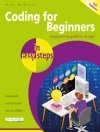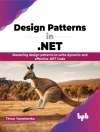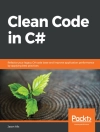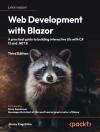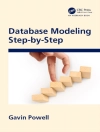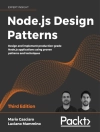This book provides a broad overview of Information and Communication Technology (ICT)-supported innovation both on an evidence-based level, a theoretical and a methodological level. It presents multi-disciplinary perspectives on organizational innovation in enterprises and the public sector, and on the ubiquitous social media-based user innovations. The book especially highlights innovation in knowledge work and human-computer interaction, innovation of and in socio-technical systems, and user-based innovation in public services. It draws upon evidence from various areas of application, including innovative mobility and the factories of the future. The studies presented here will be helpful both for innovation scholars and practitioners in industry – as well as innovators at large – in their current and future studies and undertakings.
Tabella dei contenuti
Part I: Innovative ICT Enablers in Use on Organisational Level.- Part II: Specific ICT Enablers in Use for Innovation.- Part III: Implementing Innovative ICT Enablers.- Part IV: Innovating Novel ICT Solutions.
Circa l’autore
Leonardo Caporarello, Ph D, is the Director of the Learning Lab at SDA Bocconi School of Management, and SDA Professor of Leadership & Managerial Development. He has studied at the Bocconi University (Milan, Italy), Luiss University (Rome, Italy), Harvard Law School (Boston – MA, USA). His main research, teaching and advisory topics are in the field of organizational transformation and change management. Leonardo has a long and wide experience on graduate and executive education programs. He is faculty member of the SDA Bocconi Global Executive MBA. Leonardo has been visiting professor at the Keio University in Tokyo, and Fudan University in Shanghai. He is visiting scholar at the Michigan State University, USA. Leonardo has published in journals and books, at both national and international levels. Fabrizio Cesaroni is an Associate Professor of Management at the Department of Economics, University of Messina, Italy. He obtained a Ph D in Economics and Management of Innovation at the Scuola Superiore Sant’Anna (Pisa, Italy). His main research interests are in the management of technological innovation and intellectual property rights, and in firms’ technology strategies. He is also interested in the management of technology transfer processes from non-profit research organizations (universities and public research laboratories) to industry. He has published research papers in national and international journals and in books.
After enjoying a 17 years long career in industry, Raphael Giesecke returned to academic work in 2007. He has directed various, often large-scale, multi-national and multi-disciplinary research projects at Airbus, the leading aircraft manufacturer, and at the department of Industrial Engineering and Management at Aalto University’s School of Science in Finland. His research interest is in innovation networks on two levels – organisations and individual persons. Giesecke has studied a variety of innovation ecosystems in change and disruption, starting from the news media industry and live events ecosystems towards electric mobility and, most recently, digital services.
Michele Missikoff. After 10 years in a major Italian software industry and in an Aerospace system integrator, he worked for 30 years at Italian CNR (National Research Council), where his carrier progressed until the last level of Research Director. In 1999 he founded the Lab for Enterprise Knowledge and Systems (LEKS), at Institute of Analysis of Systems and Informatics, CNR. He currently is Scientific Advisor at CNR, Institute of Sciences and Technologies of Cognition, at Università Politecnica delle Marche (Ancona) and he teaches Enterprise Information Systems at the University of International Studies (UNINT) of Rome. He has a long time experience in cooperating with the European Commission, DG Information Society (now DG Connect); he coordinated the Future Internet Enterprise Systems (FIn ES) Research Roadmap Task Force. He promoted and participated (often with a leading role) lead more than 30 national, European and international projects. His main scientific interests are in the application of semantic technologies in enterprise engineering, knowledge bases and knowledge representation, Semantic Web, semantic solutions for interoperability in e-Government and e-Business. He published more than 150 papers in books, journals and conference proceedings.


